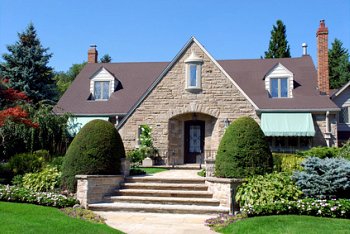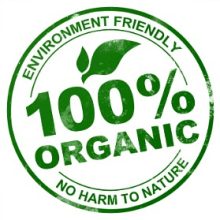Organic lawn fertilizer adds organic matter to the soil, this improves soil structure and stimulates microbial activity. Natural fertilizers release nutrients slowly and this reduces the chance of salt damage (burn) to grass plants and minimizes the risk of nutrients polluting waters by runoff or leaching.
Water, air and organic matter are essential components of healthy soil ecosystems. All living organisms – including plant roots and soil microbes – need water and oxygen to live. Organic matter binds mineral particles into granules that form soils with good structure – improving air and water movement into the soil and increasing the amounts of water a soil can hold.
Soil microorganisms also depend on organic matter for food – it is their main source of energy. As soil microbes feed on organic matter, they release nutrients that are then used by plants. A major benefit of organic fertilizers – the nutrients are released slowly as the organic matter is decomposed by microorganisms.

When used consistently over time they have the potential to improve soil nutrient availability and reduce the need for additional nutrient (fertilizer) inputs.
The major benefit of using natural fertilizers is healthy soils resulting from the addition of organic matter. Healthy soils lead to healthy landscapes.

What we cover
ToggleCaution! Take Care to Protect Our Waters
Although generally safe to use around homes, nutrients from both natural AND synthetic fertilizers have the potential to harm the environment. These nutrients are considered pollutants when they find their way into lakes, rivers and streams. Therefore, it is VERY important to follow good fertilizing practices – proper timing, rates and application methods.
Before applying any of these products make sure your spreader is working properly and is calibrated for the materials to be applied.
Cleanup when finished! Sweep or blow fertilizer off of sidewalks, driveways and roads to prevent them from washing into storm drains and contaminating our water supplies.
Have you heard about the Sunday Smart Lawn Plan? It’s simple, do-it-yourself natural lawn care that’s customized to your soil, climate, and lawn. Delivered to you right when you need it.
Have you heard about the Sunday Smart Lawn Plan? It’s simple, do-it-yourself natural lawn care that’s customized to your soil, climate, and lawn. Delivered to you right when you need it.
You might like these
Chemical Fertilizers vs. Organic lawn Fertilizers
Are natural organic fertilizers safer than chemical fertilizers? Are they better or safer for lawns, the environment, and your family? Do synthetic sources of nutrients harm the soil?
Vinegar Weed Killer vs. Roundup
Why your recipe for homemade vinegar weed killer won’t work. Glyphosate is a more effective and safe non-selective herbicide. Helpful DIY lawn care tips and advice. Organic weed control and more.
Corn Gluten Meal – Natural Weed and Feed for Lawns
Corn Gluten Meal has been touted as a natural weed and feed – a pre-emergent crabgrass preventer. Is it effective? Or simply a good source of slow-release nitrogen.
